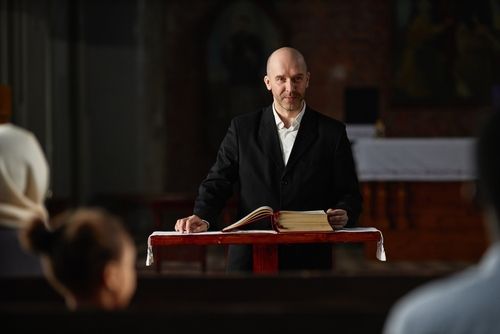 In any role that requires someone to give tirelessly, the potential exists for burnout. Church leaders entrusted with their congregations' spiritual welfare are no exception. Balancing leading a community, counseling members, and managing administrative duties can be overwhelming. Doing so while maintaining personal spiritual health makes it even more challenging. However, with the right strategies in place, church leaders can avoid exhaustion.
In any role that requires someone to give tirelessly, the potential exists for burnout. Church leaders entrusted with their congregations' spiritual welfare are no exception. Balancing leading a community, counseling members, and managing administrative duties can be overwhelming. Doing so while maintaining personal spiritual health makes it even more challenging. However, with the right strategies in place, church leaders can avoid exhaustion.
Set Clear Boundaries
Burnout often occurs when leaders feel pulled in too many directions without time for rest and rejuvenation. To prevent this, leaders need to set clear boundaries. This may mean scheduling regular days off, designating specific hours when they are unavailable, or even putting limits on counseling sessions. By doing so, church leaders can ensure they get the necessary downtime to recharge.
Delegate Responsibilities
No one can do everything. Church leaders need to recognize their limitations and delegate tasks to other individuals. This reduces the workload and gives congregation members ownership of specific responsibilities. Whether entrusting the church youth group to a reliable volunteer or asking a committee to handle event planning, spreading the workload can ease pressure on leaders.
Prioritize Self-Care
Just as leaders prioritize the well-being of their congregation, they must also focus on their well-being. Scheduling regular times for prayer, meditation, reading, or any other activity nourishes the soul. Additionally, physical health plays a pivotal role in preventing burnout. Regular exercise, a balanced diet, and adequate sleep can provide the energy needed to face leadership challenges.
Seek Mentorship and Counseling
Even leaders need guidance. Seeking mentorship from experienced leaders can provide invaluable insights and wisdom. Church leaders can also take their burdens to a third-party professional by seeing a counselor. Engaging in regular sessions can offer a safe space to voice concerns, seek advice, and process the emotional weight of leadership.
Encourage a Supportive Community
A church isn't just a place of worship; it's a community. Leaders should cultivate strong relationships within their congregation and leadership team. When leaders have a supportive community around them, they can share burdens, discuss challenges, and find encouragement. These connections can prevent feelings of isolation that contribute to burnout.
Pursue Continual Learning
Burnout can also stem from stagnation or repetition. To combat this, church leaders should commit to lifelong learning. Whether attending conferences, reading the latest books on theology, or participating in workshops, continuous education can reignite passion for the ministry.
Practice Time Management
With many responsibilities, church leaders must master the art of time management. This includes prioritizing tasks, setting realistic goals, and being organized. By managing their time effectively, leaders can ensure they allocate enough time for each role without feeling overwhelmed.
Remember the 'Why'
When faced with the day-to-day challenges of leadership, it's easy to lose sight of the bigger picture. Church leaders should regularly remind themselves of their calling and the purpose behind their role. By reconnecting with their "why," leaders can find renewed motivation and drive, even during challenging times.
Take Regular Breaks
Sometimes, the best way to recharge is to take a step back. Church leaders should consider scheduling regular breaks or sabbaticals. Whether it's a few days or months, this time away from normal duties can offer a fresh perspective and a much-needed rest.
Stay Open to Feedback
Burnout can also arise from unresolved issues or tensions within the congregation. By maintaining open communication and being receptive to feedback, church leaders can address potential problems before they escalate, ensuring a healthier environment for themselves and their congregation.
Avoiding burnout is essential for church leaders' long-term health and effectiveness. By implementing these strategies, leaders can properly care for their congregations without sacrificing their well-being.



